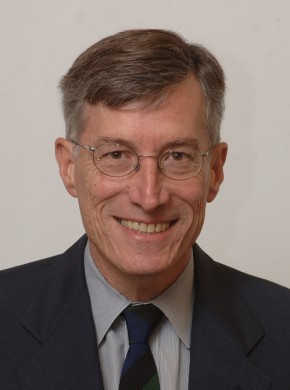5 Questions on Russia with International Diplomacy Prof. Stephen Sestanovich

In his 2014 book, Maximalist: America in the World from Truman to Obama, Stephen Sestanovich argued that since World War II U.S. policy makers have alternated between overdoing it and “underdoing” it.
Now Sestanovich is looking at foreign policy in the Trump era, especially dealings with Russia. Before he joined Columbia in 2001 as the Kathryn and Shelby Cullom Davis Professor for the Practice of International Diplomacy at the School of International and Public Affairs, he was ambassador-at-large and special advisor to the U.S. Secretary of State on the newly independent states of the former Soviet Union, and vice president for Russian and Eurasian affairs at the Carnegie Endowment for International Peace.
An article he wrote about Trump’s foreign policy appeared in the May issue of the Atlantic.
Q. You have written about 20-year cycles in American foreign policy. Where are we now in such a cycle?
A. As a country, we periodically debate whether to scale back our foreign policy or resume a larger global role. The candidates in the 2016 presidential campaign presented a range of alternative policies, from increased activism to deeper retrenchment. Donald Trump alone proposed to do both much more and much less—to squeeze adversaries and leave allies on their own. As a blueprint for policy, this was a hopeless jumble, but as a way of positioning himself in the campaign it was very effective.
Q. How would you describe the current state of U.S.-Russia relations now that Trump is president?
A. “Tentative” and “confused” are good terms to describe the relationship today. The president clings to his desire to “get along beautifully” with Putin—and their recent meeting in Hamburg was a small step forward toward cooperating in Syria. Both presidents clearly wanted to go beyond “de-confliction” (keeping our military forces from bumping into each other) to “de-escalation” (a ceasefire and perhaps steps toward a political settlement).
But on most issues relations remain adversarial. Trump’s own speech in Warsaw spoke of Russia’s “destabilizing” activities. U.S. sanctions against Russia are still in place. Public rhetoric in both countries is harsh and combative. And, of course, there’s the scandal here over possible collusion in last year’s campaign.
Q. Why would the Russians want to meddle in our election and what can we do about it?
A. I don’t think Putin believed Trump could defeat Clinton, even with Russian help. But did Putin think Russia would benefit if he did? Obviously. These days he’s surely having some second thoughts.
As for what we can do about it, the core of our response going forward surely has to be unilateral. Consultation and cooperation between the two governments—and especially between their intelligence services and cyber-security experts—can play a marginal role at best. We’ve got to increase the security and resilience of our own systems.
Q. What is the impact of Donald Trump Jr.’s meeting with a Russian lawyer with ties to the government in June 2016, when he was joined by his brother-in-law Jared Kushner and then Trump campaign manager Paul Manafort?
A. Well, it’s certainly made us all much more familiar with a circle of Moscow small-timers and would-be power brokers. The story may not prove collusion, but it does highlight the Trump campaign's strong interest in colluding.
Q. How does all this affect U.S. foreign policy? What should our goals be with regard to Russia?
A. The media frenzy and the U.S. Justice Department investigation make other governments worry that America is going to be of little use as a serious international player for the time being. Our allies may be antagonized by some of the administration’s policies, but the president’s seeming paralysis also demoralizes them.
As for Russia, a lot of people say we should agree where we can, disagree where we must, and build a relationship on that basis. For the short term, that’s an okay formula. In the longer term, I’d say our goal should be to bring Russia back to a more meaningful kind of partnership, based on a shared strategic outlook. But we shouldn’t let that hope keep us from pushing back where we find Russian policies and actions unacceptable.
My summary would be: aim very high, be ready for very low.